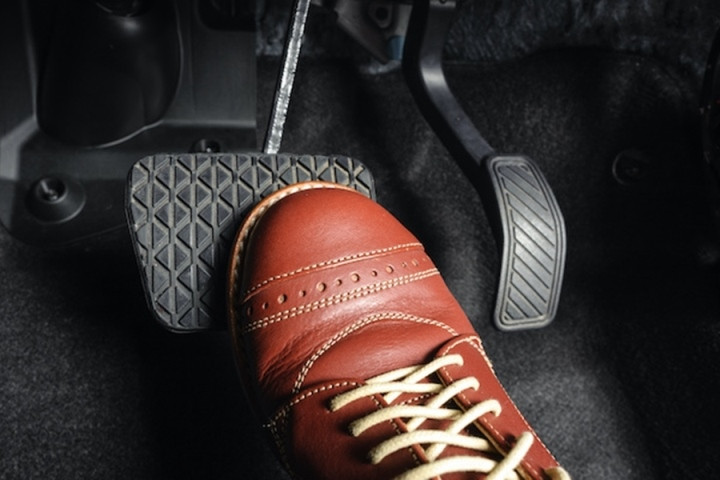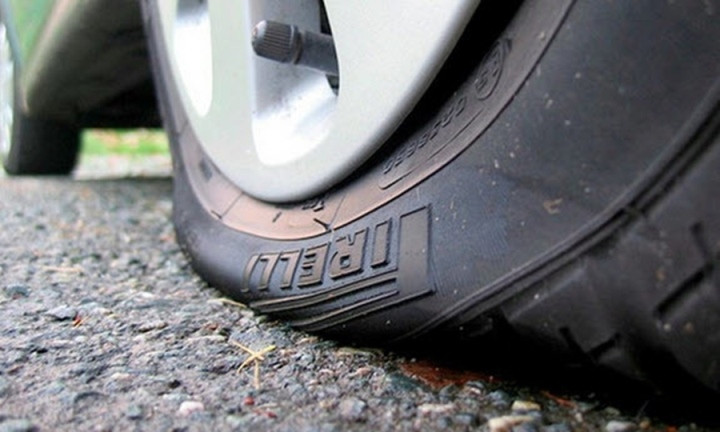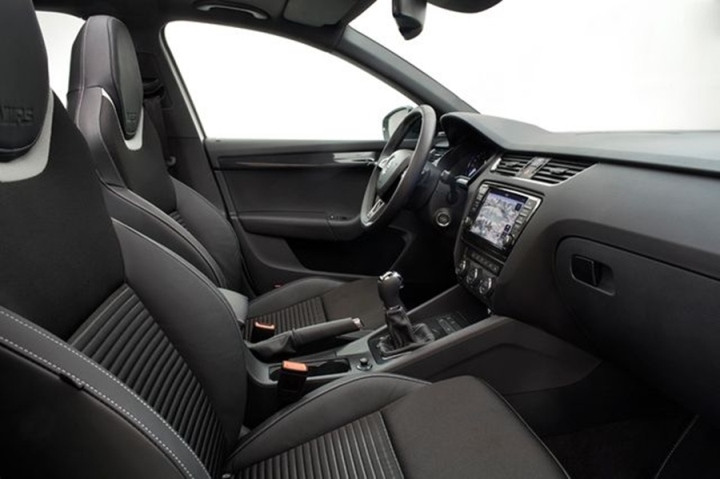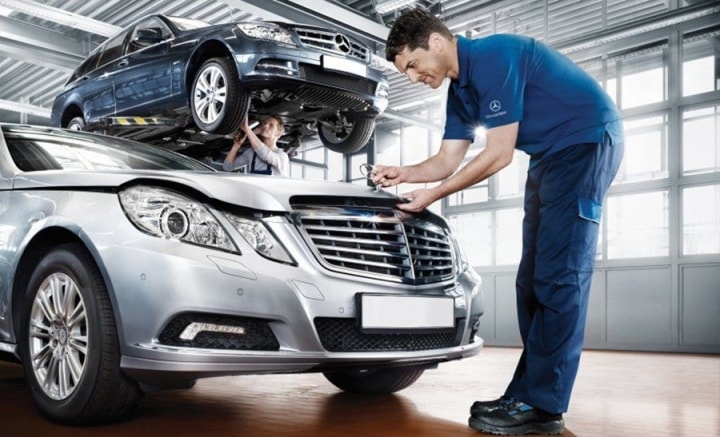Gas-consuming car habits that many drivers often have
Accelerating, braking suddenly, using flat tires, abusing car equipment... are habits that make cars consume more fuel.
Fuel consumption depends on the type of vehicle, the condition of the vehicle and objective factors such as temperature, distance... In addition, the driver's habits also have a significant impact on fuel efficiency. Below are some bad habits of drivers that cause cars to consume more fuel.
Accelerate and brake suddenly
The habit of stepping on the gas pedal all the way and braking suddenly is one of the reasons why cars consume more fuel. At that time, the engine speed is unstable, the fuel burning process is also faster. To ensure the power and traction for the car to operate, fuel needs to be consumed more than usual.

Therefore, drivers should accelerate slowly, maintain a steady throttle and coordinate the accelerator and gear pedals rhythmically. This habit not only helps save fuel but also ensures safety when participating in traffic as well as prolongs the life of the engine.
Regularly keep tires under-inflated
Regularly driving with lower tire pressure than standard (under-inflated tires) is also one of the reasons why cars consume more fuel.

Automotive technicians say that worn tires or low tire pressure increase the friction area between the wheel and the road surface, causing greater resistance, causing the engine to consume more fuel when operating.
Many cars today are equipped with tire pressure monitoring systems. Drivers should pay close attention to check and ensure that their tires are always properly inflated.
Do not turn off the engine when stopping the car
Many drivers believe that turning off the engine when stopping for a short time will consume more fuel than leaving the engine running. However, this concept not only makes the car consume more fuel but also pollutes the environment.
Research results from the California Energy Association (USA) show that every minute the engine is restarted when the car is stopped will consume an amount of gasoline equivalent to traveling 1km. In order to support customers in operating the car more conveniently, most modern car models are equipped with an electronic fuel injection system with automatic engine on/off function, helping to limit the situation of the car wasting gasoline every time it starts. Therefore, car owners should make the most of this system and support features to save fuel.
Abuse of electrical equipment in vehicles
Overuse of electrical equipment in the car such as lights, air conditioning, entertainment features... also consumes fuel significantly. Therefore, turn off lights and air conditioning when not needed.

In the summer, avoid closing the door and turning on the air conditioner at the highest setting. This will cause the cooling system to work at full capacity. Instead, roll down the window and open/close the car door a few times to push the hot air out of the car. You should turn on the air conditioner at a moderate temperature, increase the wind speed if you need more cooling before deciding to reduce the temperature.
Fill up the gas tank
Gasoline has the property of evaporation and expansion. If the tank does not have enough space, gasoline can leak out and cause waste. Moreover, gasoline expands under high temperature conditions, creating pressure in the fuel tank, creating a risk of fire or explosion.
You should fill up with gasoline in moderation according to the manufacturer's instructions. Avoid filling up with gasoline at noon or early afternoon to prevent the gasoline from evaporating due to high outside temperatures.
Storing too much stuff in the car
Many drivers have the habit of storing dozens of items in their cars such as blankets, food, drinks, camping gear... even though they are not used often. This increases the vehicle's weight, causing more fuel consumption.
A better way to save gas is to only carry the right amount of gear for each trip. Remove the gear from the car at the end of the trip instead of storing it day after day.
Lower the window when the car is running at high speed
When driving over 70 km/h, many drivers turn off the air conditioner and lower the windows to let in fresh air to help save fuel. However, this is actually a wrong habit. Because opening the windows while the car is running will increase wind resistance, causing the engine to work harder and consume more fuel.
Not paying attention to regular maintenance schedules
Not maintaining your vehicle regularly puts parts at risk of damage, causing unstable operation, leading to high fuel consumption.

Regular maintenance will help fix any signs of damage. In addition, during the maintenance process, the engineer will clean some parts such as the air filter, check and fix spark plugs, exhaust pipes, change oil, change coolant. These things help the vehicle operate better and save more fuel.

